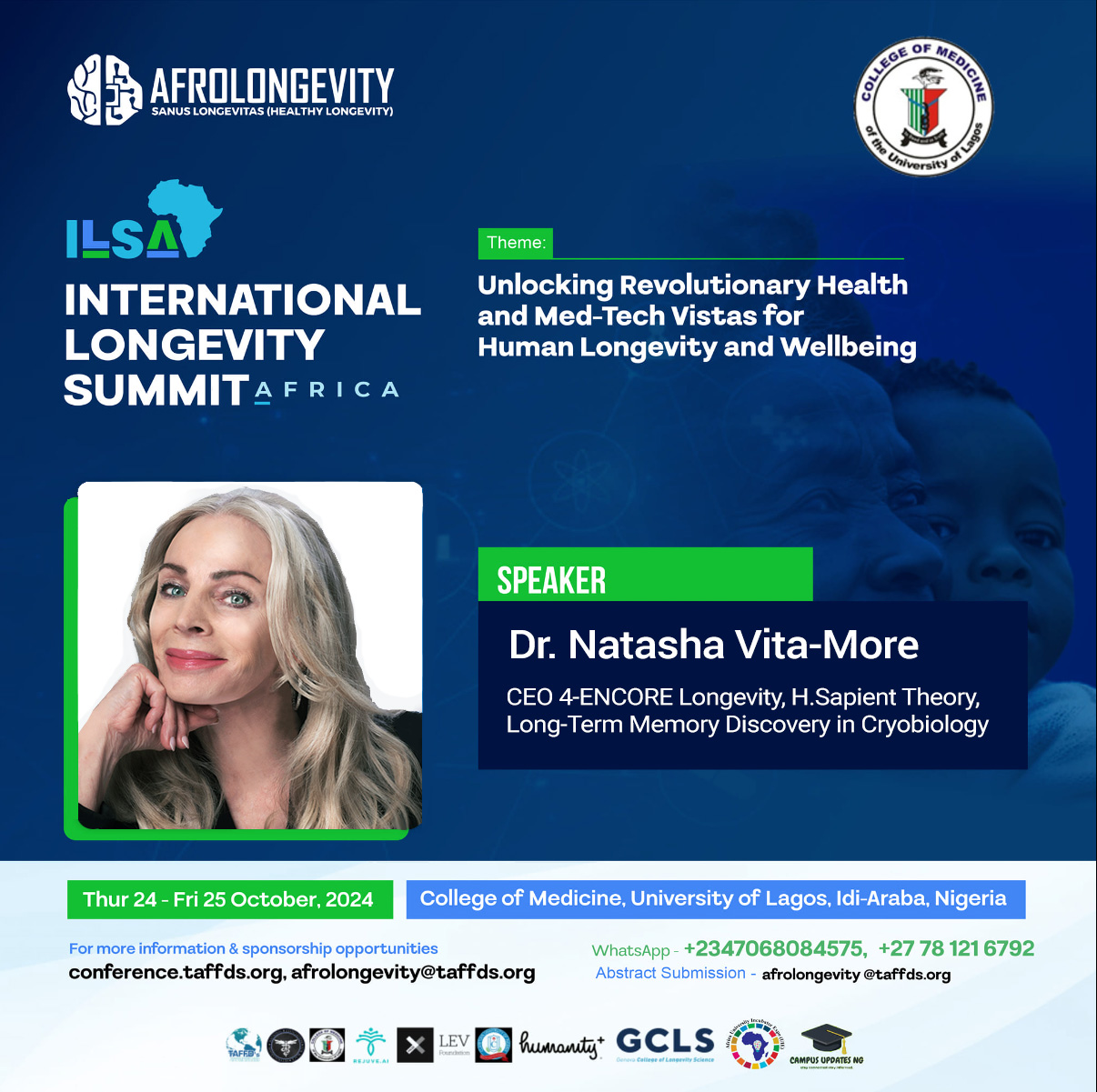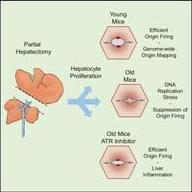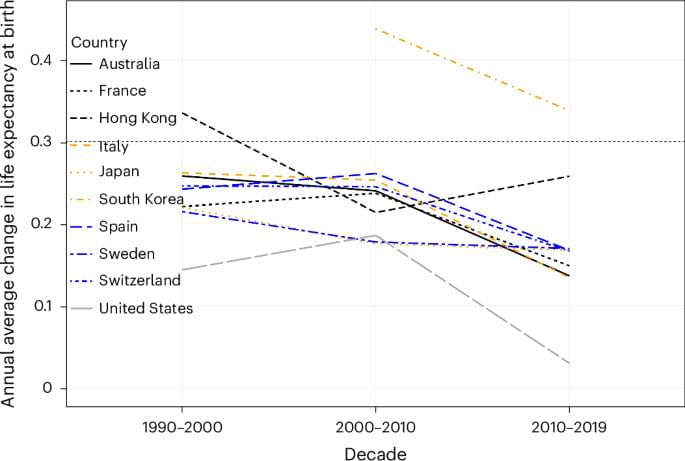Archive for the ‘life extension’ category: Page 19
Oct 10, 2024
Where an Anti-Aging Theory Goes Right (and Wrong)
Posted by Natasha Vita-More in category: life extension

My recent Op-Ed: We need integrated approaches to healthy longevity and to our human future. Enjoy my article and work with me to build a community of Human evolution of consciousness with AI.
Oct 9, 2024
In vivo DNA replication dynamics unveil aging-dependent replication stress
Posted by Shubham Ghosh Roy in categories: biotech/medical, life extension
In vivo DNA replication dynamics in regenerating mouse livers unveil aging-dependent decline in replication efficiency and a crucial role of the ATR checkpoint kinase in mitigating inflammation associated with the decline.
Oct 9, 2024
The 900-Day Rule For Evaluating Longevity Interventions (Paper Presentation By Kamil Pabis, MSc)
Posted by Mike Lustgarten in categories: life extension, media & arts
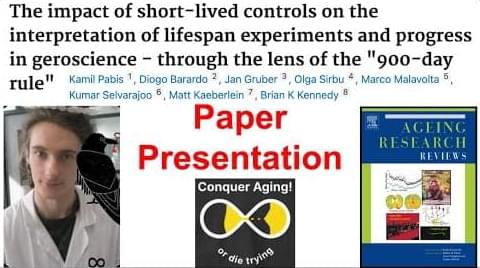
Enjoy the videos and music you love, upload original content, and share it all with friends, family, and the world on YouTube.
Oct 8, 2024
Scientists Are Closer Than Ever To Reverse Aging. How Does It Work? | Life Extended
Posted by Shailesh Prasad in categories: biotech/medical, business, finance, food, life extension
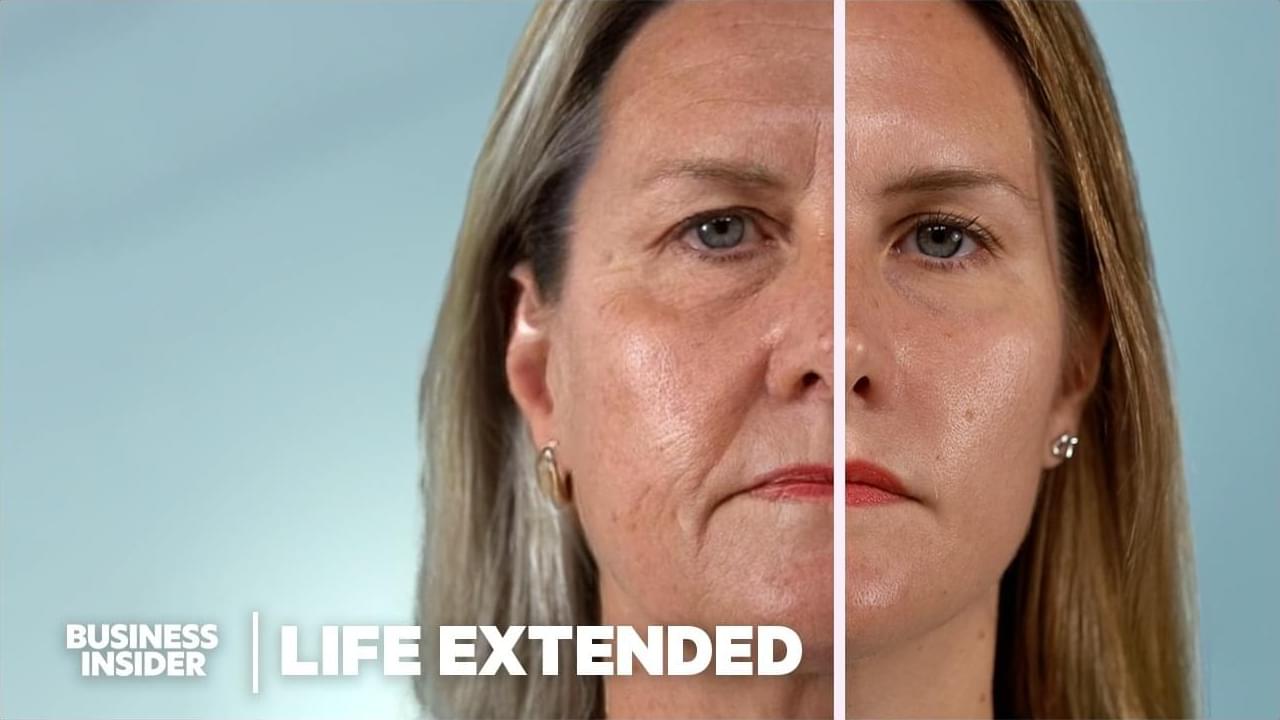
Billionaires are backing top scientists racing to develop tech that could reverse aging. Cellular reprogramming promises to rejuvenate the body… but how does it work, and is it safe?
00:00 – Introduction.
00:55 – The Role Of Stem Cells.
02:33 – What Is Aging?
03:24 – What Is Cellular Reprogramming?
03:56 – How The Yamanaka Factors Can Rejuvenate Cells.
05:35 – Why Scientists Want To Partially Reprogram Cells.
06:28 – How Humans Could Become More Resilient To Age-Related Diseases.
07:00 – How Johnny Huard Uses Cellular Reprogramming.
08:10 – How Cellular Reprogramming Could Shape The Future.
08:38 – Amazon’s Jeff Bezos Is Investing Billions With Altos Labs.
09:02 – How Harvard Professor David Sinclair Used Cellular Reprogramming on Mice.
10:07 – ChatGPT’s Sam Altman Launched Retro. Biosciences.
10:57 – The Risks of Cellular Reprogramming, Including Cancer.
12:56 – How the Tech World Is Investing In Biotech.
13:50 – Credits.
Oct 8, 2024
Therapy could boost lifespan by 25pc
Posted by Shubham Ghosh Roy in categories: biotech/medical, economics, food, life extension
Researchers at Duke-NUS Medical School have identified interleukin-11 (IL11) as a key factor in the ageing process. Elevated IL11 levels lead to fat accumulation and muscle loss—two major indicators of ageing. Inhibiting IL11 could enhance healthy lifespans.
Ageing populations pose significant health and economic challenges globally. Even a one-year increase in life expectancy could be valued at $38 trillion.
In a study published in Nature, the team demonstrated that anti-IL11 therapy not only counters the harmful effects of ageing but also increases lifespan by up to 25% in preclinical models. The therapy shifts metabolism from generating harmful white fat to beneficial brown fat, which helps burn calories and maintain body temperature.
Oct 7, 2024
Human Lifespan May Have a Hard Ceiling, Research Suggests
Posted by Paul Battista in category: life extension
Our longevity may actually turn out to have a hard limit. In a new study this week, scientists show that the long rise in our collective life expectancy seen during the 20th century has started to slow down as of late. The findings suggest that focusing on simply expanding our lifespan might be short-sighted, the researchers say.
Oct 7, 2024
Implausibility of radical life extension in humans in the twenty-first century
Posted by Longevity in categories: biotech/medical, life extension
Abstract Over the course of the twentieth century, human life expectancy at birth rose in high-income nations by approximately 30 years, largely driven by advances in public health and medicine.
In the twentieth century, human life expectancy rose dramatically. Based on the past three decades of observed mortality in the eight countries with the longest-lived populations and in Hong Kong and the United States, Olshansky et al. propose that, without medical breakthroughs that slow aging, radical lifespan extension is implausible in this century.
Oct 7, 2024
Aging slowdown could be surprise benefit of existing medication, research shows
Posted by Paul Battista in categories: biotech/medical, life extension
A drug used to prevent organ rejection in kidney transplant patients is being touted for potentially slowing down aging. Experts comment on the potential benefits and the need for more research.
Oct 6, 2024
Sabine Hossenfelder, physicist: ‘If you trust the mathematics, we are immortal’
Posted by Dan Breeden in categories: life extension, mathematics
The German scientist argues that information cannot be destroyed and, in principle, it is possible that a higher being, one day, in some way, could reassemble it and bring it back to life.
